S. Barro
Fuzzy Sets Across the Natural Language Generation Pipeline
May 17, 2016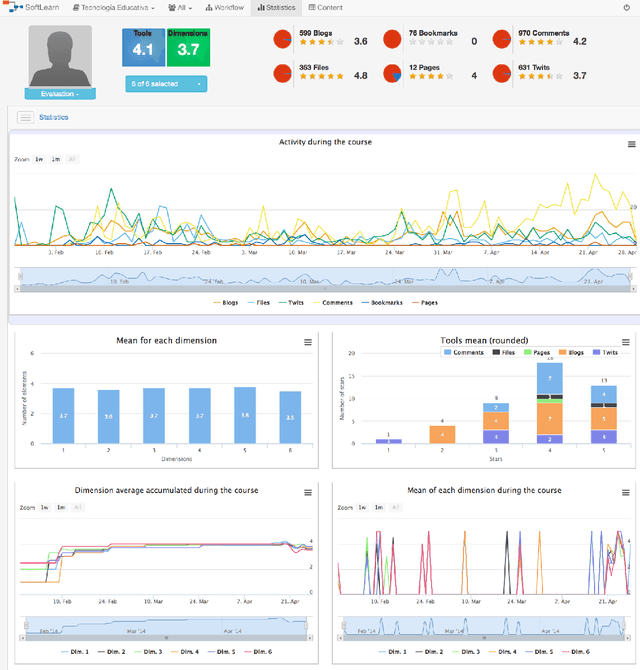

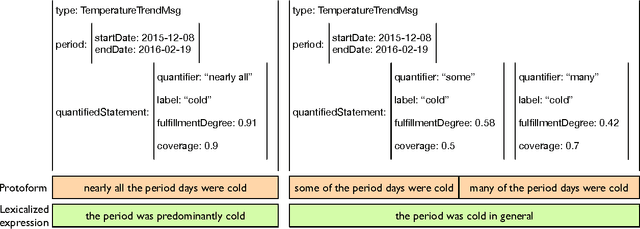

Abstract:We explore the implications of using fuzzy techniques (mainly those commonly used in the linguistic description/summarization of data discipline) from a natural language generation perspective. For this, we provide an extensive discussion of some general convergence points and an exploration of the relationship between the different tasks involved in the standard NLG system pipeline architecture and the most common fuzzy approaches used in linguistic summarization/description of data, such as fuzzy quantified statements, evaluation criteria or aggregation operators. Each individual discussion is illustrated with a related use case. Recent work made in the context of cross-fertilization of both research fields is also referenced. This paper encompasses general ideas that emerged as part of the PhD thesis "Application of fuzzy sets in data-to-text systems". It does not present a specific application or a formal approach, but rather discusses current high-level issues and potential usages of fuzzy sets (focused on linguistic summarization of data) in natural language generation.
Linguistic Descriptions for Automatic Generation of Textual Short-Term Weather Forecasts on Real Prediction Data
Nov 18, 2014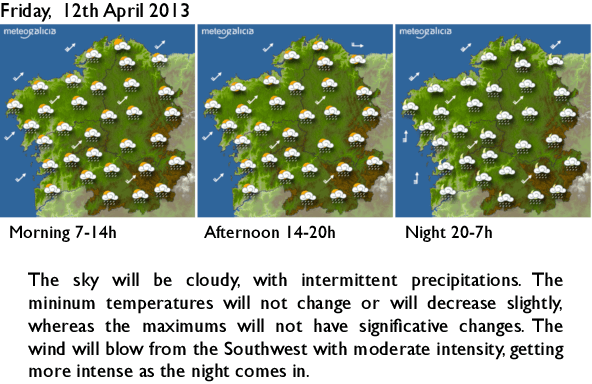
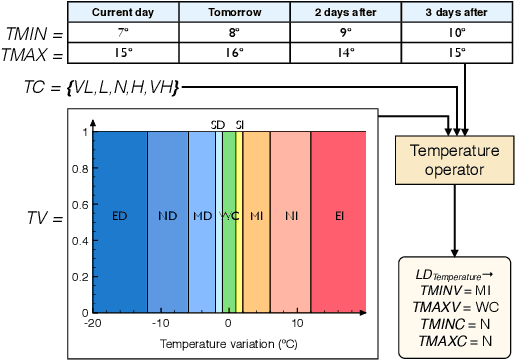
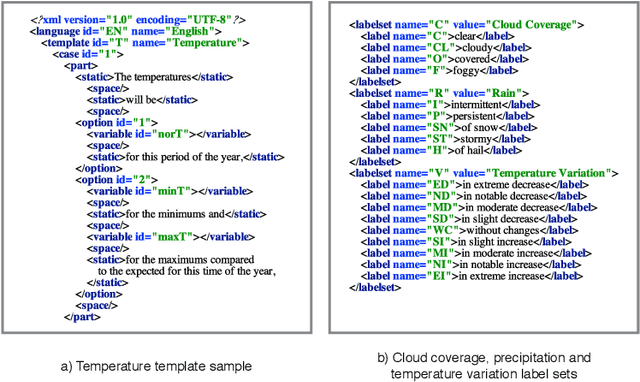
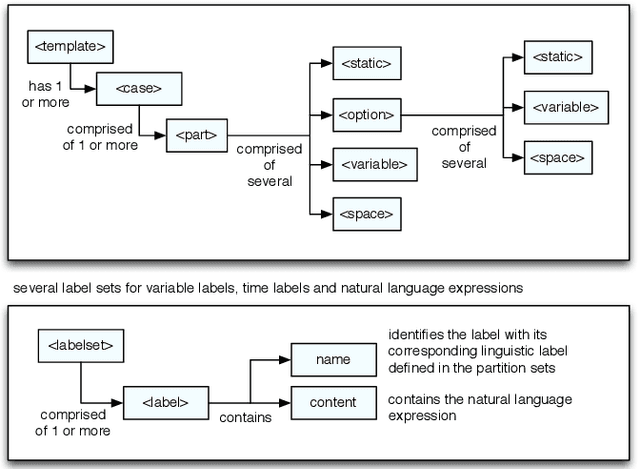
Abstract:We present in this paper an application which automatically generates textual short-term weather forecasts for every municipality in Galicia (NW Spain), using the real data provided by the Galician Meteorology Agency (MeteoGalicia). This solution combines in an innovative way computing with perceptions techniques and strategies for linguistic description of data together with a natural language generation (NLG) system. The application, named GALiWeather, extracts relevant information from weather forecast input data and encodes it into intermediate descriptions using linguistic variables and temporal references. These descriptions are later translated into natural language texts by the natural language generation system. The obtained forecast results have been thoroughly validated by an expert meteorologist from MeteoGalicia using a quality assessment methodology which covers two key dimensions of a text: the accuracy of its content and the correctness of its form. Following this validation GALiWeather will be released as a real service offering custom forecasts for a wide public.
 Add to Chrome
Add to Chrome Add to Firefox
Add to Firefox Add to Edge
Add to Edge